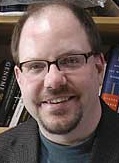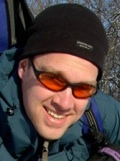Two UW–Madison researchers build ties with Indonesia
It took a trip halfway around the world to bring two University of Wisconsin–Madison scientists together.

Hawks
Paleoanthropologist John Hawks and climate scientist Dan Vimont had never crossed paths on the Madison campus due to their very divergent areas of study. But they landed on common ground at the Kavli Indonesian-American Frontiers of Science Symposium, held July 11-15 in Solo, Indonesia.
Co-organized by the Indonesian and U.S. National Academies of Sciences, the symposium brought together a mix of young American and Indonesian scientists from a range of fields — nanotechnology to earthquakes — to discuss globally relevant research and to foster collaborations between the two countries. The UW–Madison researchers were two of just nine U.S. scientists invited to speak.

Vimont
The Frontiers of Science symposia have promoted connections between young scientists since 1989, with increasing importance placed on international relationships with scientists in Europe and Asia. The Indonesian-American symposium began in 2011 in response to the Obama administration’s call for stronger ties with scientists in predominantly Muslim countries.
“The goal is to get people talking — to help Indonesian scholars develop their scientific infrastructure and to get more Americans involved who might have an interest in working there,” says Hawks.
Vimont, a professor of atmospheric and oceanic sciences and a climate researcher in the Nelson Institute for Environmental Studies, discussed international food security in the face of changing climate, a critical concern in a country whose rice imports in a bad growing year can equal roughly a fifth of the total global rice market. Hawks, a UW–Madison anthropology professor, spoke about human evolution and genetic variation.
Both met potential future collaborators and came away with a stronger appreciation of the research needs and opportunities in Indonesia. In addition to the scientific sessions, the participants attended cultural events and local tours, and Hawks was able to spend a day at a nearby dig with an Indonesian paleontologist.
“I see science as a unifying theme for bringing people together,” Vimont says. “These symposia are a piece of a broader effort to use science as a way to encourage development.”




